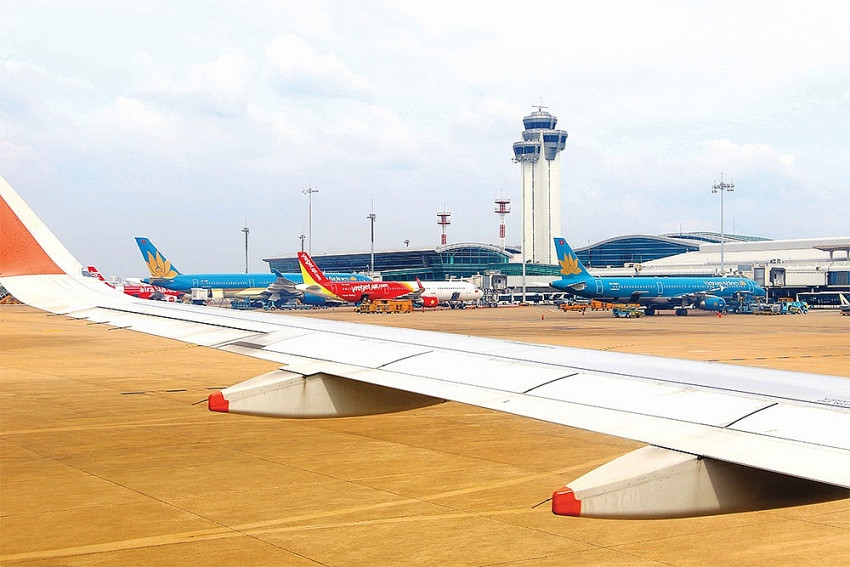 |
| Some models have had to cease operating for complex engine inspections, Photo: Le Toan |
“We continue to ramp up across all our commercial aircraft programmes and are aiming for around 800 deliveries worldwide in 2024, up from 735 in 2023 and 661 in 2022,” said an Airbus spokesperson after being asked about the shortfall of aircraft globally.
“We continue to invest, modernise and adapt our global industrial system to support a ramp up. Vietnam is an important market for Airbus, and we will seek to minimise any impact caused by supply chain issues.”
To date, Airbus has sold more than 250 civil passenger aircraft to airlines in Vietnam, including the best-selling single-aisle A320 Family, the popular and versatile A330 wide body, and the long-range leader A350.
Today, there are more than 200 Airbus aircraft operating in the fleets of Bamboo Airways, Pacific Airlines, Vietjet, Vietnam Airlines, and Vietravel.
According to the Ministry of Transport (MoT), the shortfall is blamed for the fact that a number of Vietnamese airlines, such as Pacific Airlines and Bamboo Airways, have implemented restructuring so they returned aircraft, and cut back on the operation of some flight routes.
According to the announcement of engine manufacturer Pratt & Whitney, a number of Airbus aircraft equipped with NEO engines of airlines must be recalled to carry out in-depth inspection and repair of the PW 1100 engine. Since January 2024, about half of the 42 A321 NEO aircraft of Vietnam Airlines and Vietjet had to stop operating for engine inspection according to the instructions of Pratt & Whitney.
“The above factors have directly been affecting the supply of aircraft on domestic and international routes, causing certain difficulties for passengers,” the MoT said in the document sent to the Civil Aviation Authority of Vietnam (CAAV).
“We ask the CAAV to guide airlines to urgently research and develop plans to operate and supplement aircraft to ensure operation, especially during the upcoming holiday on April 30 and peak periods, as well as strictly abiding by the law.”
According to Boeing’s 2023 Commercial Market Outlook, Southeast Asia’s commercial aircraft fleet will reach more than 4,000 jets by 2042, nearly quadrupling the current number of commercial aircraft in the region.
“Vietnam is among Southeast Asia’s fastest-growing markets. Expanded connectivity, tourism, and low fares will continue to stoke new and increased travel, especially among a growing middle class across the country and region. The role of low-cost carriers will continue to rise to fill that demand for air travel,” a Boeing spokesperson told VIR.
In Vietnam, Boeing in 2023 signed contracts with Vietnam Airlines and Vietjet to deliver hundreds of Boeing 737 Max. The company has been mired in a slew of negative stories since a door panel blew out on a Boeing 737 Max plane flown by Alaska Airlines in January. Three senior Boeing executives including its CEO are stepping down, the company said on March 25, as it continues to deal with a federal investigation into safety.
Boeing is now limiting production while it tries to resolve the quality problem. In a Bank of America conference on March 20, Boeing CFO Brian West predicted that in the first quarter, it could lose $3-4 billion in cash.
Boeing’s incident let orders flow to Airbus, their main competitor. Last week, the French group ordered 65 aircraft from Boeing’s two traditional customers in Asia, Japan Airlines and Korean Air.
Phan Hoang Phuong, head of Urban Transport at the Transport Development and Strategy Institute under the Ministry of Transport, said that this is another blow to Vietnamese air carriers which have been seriously suffering since 2020.
“Airlines in Vietnam need to learn lessons from the incident and should enhance risk prevention capacity to possibly deal with global risks in the future,” he said.
The local aviation market is not fertile land for every player involved. The take-off of low-cost carrier Bamboo in 2019 was once seen as fresh air for the market and brought about competitive service quality to customers. However, Bamboo is now mired in losses and is restructuring its business strategy.
Meanwhile, Pacific Airlines faces hardship after more than three decades of operation. According to the CAAV, Pacific Airlines temporarily stopped operating flights from March 18, after returning all leased aircraft from partners.
The airline is restructuring its flight routes and will look for new partners to lease aircraft. Once hired, the airline will continue to operate the registered routes.
Pacific Airlines was established in 1991 as Vietnam’s first low-cost airline. The airline has lost more than $84 million every year since 2020.
VIR